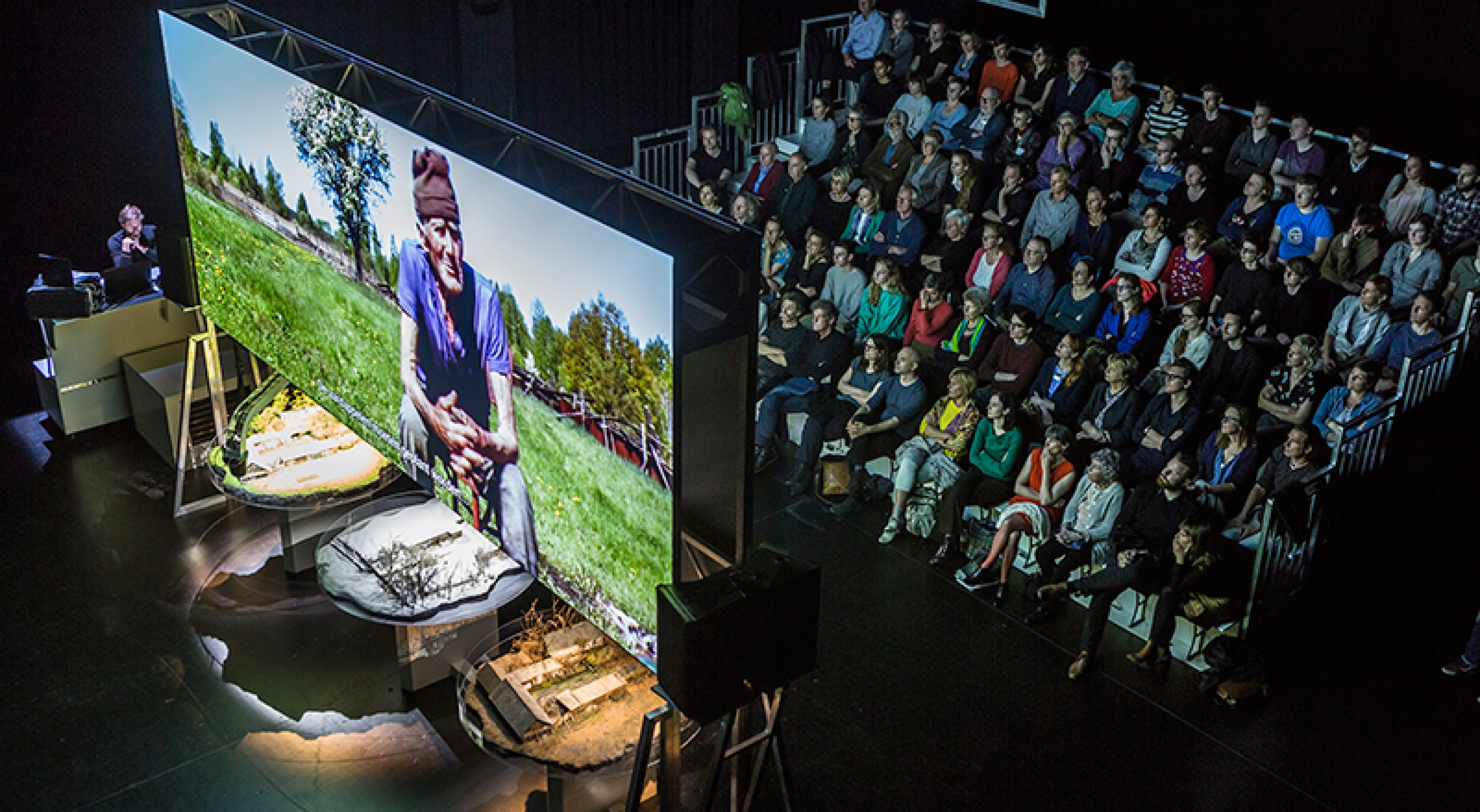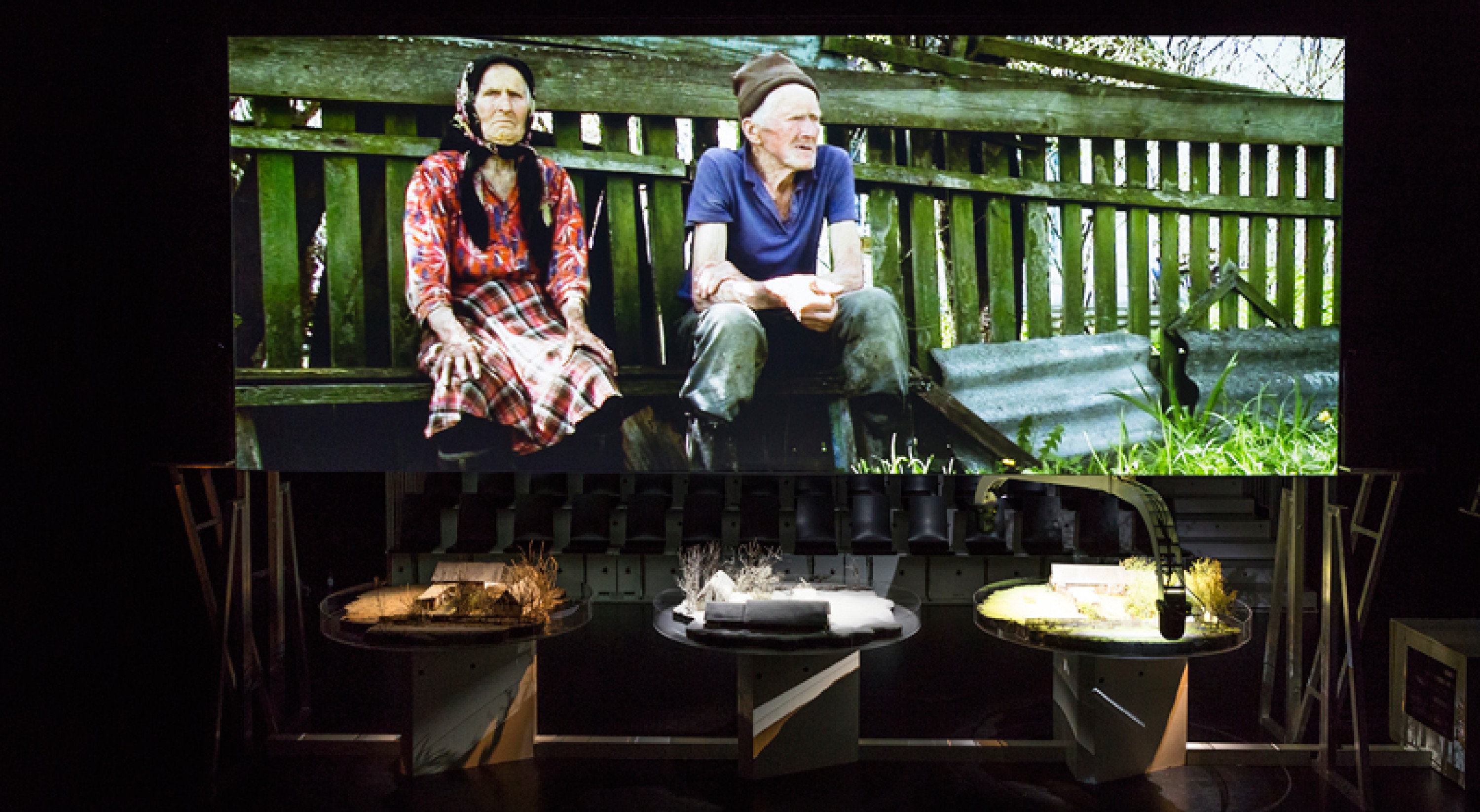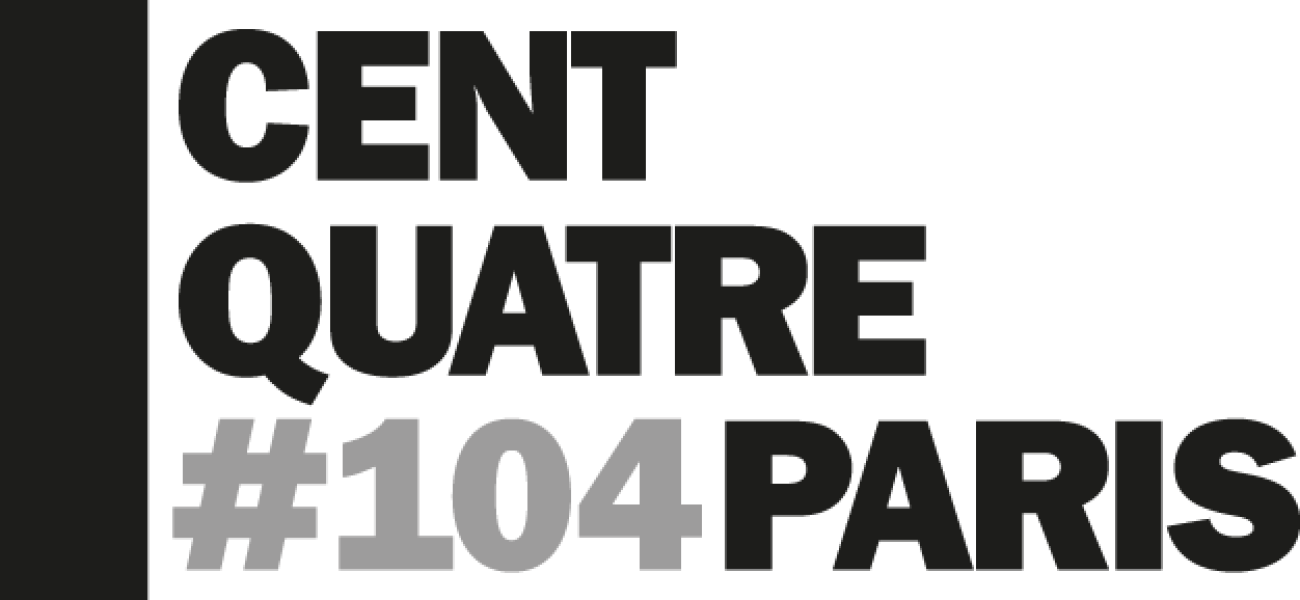Berlin
Zvizdal [Chernobyl, so far so close]
novembernov 30 - december – dec 30
Concept, Bart Baele, Yves Degryse, Cathy Blisson
With Nadia Pylypivna Lubenocet and Pétro Opanassovitch-Lubenoc
Stage design, Manu Siebens, Ina Peeters, Berlin
Interviews, Yves Degryse, Cathy Blisson
Camera work and editing, Bart Baele, Geert De Vleesschauwer
Sound recordings, Toon Meuris, Bas de Caluwé, Manu Siebens, Karel Verstreken
Interpreter, Olga Mitronina
Musical composition, Peter Van Laerhoven
A Het Zuidelijk Toneel (Tilbourg) coproduction ; PACT Zollverein (Essen) ; Dublin Theatre Festival ; Kunstenfestivaldesarts (Brussels) ; BIT Teatergarasjen (Bergen) ; Künstlerhaus Mousonturm (Francfort-sur-le-Main) ; Theaterfestival Boulevard (Den Bosch) ; Brighton Festival ; Onassis Cultural Centre [Athène, GR] ; Le CENTQUATRE-PARIS // In association with Le CENTQUATRE-PARIS ; Festival d’Automne à Paris // In collaboration with deSingel (Anvers) //With the support of Gouvernement Flamand
First performed on 12th May 2016 at Kunstenfestivaldesarts (Brussels)
Contrary to what you might think, since its birth in 2003, Berlin has been based in... Anvers. If this choice of opening sentence might seem like a deliberate desire to confuse the issue, it is actually a reflection of the interest that this artistic duo has in the characteristics of the German capital, in which “past and future are equally present”. Yves Degryse and Bart Baele - associates of Caroline Rochlitz until 2009 - have been exploring these same dimensions in their “Holocene” cycle. Each episode of “Holocene”, the name of the present-day geological era, builds up a portrait of a town or territory, drawing, in particular, on interviews conducted with its inhabitants. The result is a series of autonomous theatrical objects in which video work, staged with brio, plays a major role. After Jerusalem (2003), Iqaluit (2005), Bonanza (2006) and Moscow (2009), Berlin focusses on a remote Ukrainian village. Through the intermediary of the journalist and author Cathy Blisson - a co-partner in the piece - Berlin follows, over a period of five years, the lives of a couple living inside the no-go area around the Chernobyl nuclear power station. After stubbornly refusing to leave their farm, the couple Nadia and Pétro Opanassovitch-Lubenoc, now in their eighties, live without running water, electricity nor telephone, but never give up the hope of one day seeing the village full of people again. A long-term project, Zvizdal unfurls with the coming and going of the seasons, in a world in which danger, invisible as it may be, is all around. It provides us with a reflection on isolation, the question of survival, frugality, and lastly, the expectancy of death.
In the same place


